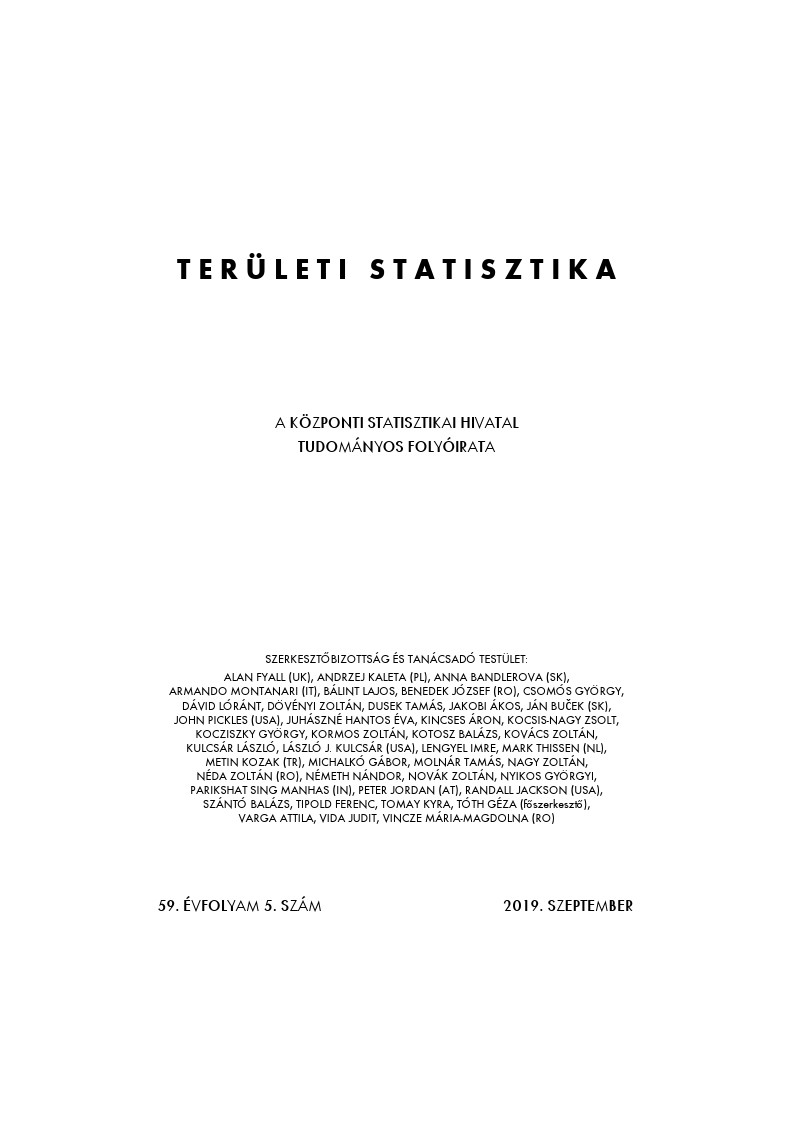A magyar vidék demográfiai jövőképe 2051-ig, különös tekintettel a klímaváltozás szerepére a belső vándormozgalom alakításában
Demographic scenarios for the Hungarian rural areas
with consideration to the effects of climate change
Author(s): József LennertSubject(s): Social Sciences, Economy, Geography, Regional studies
Published by: Központi Statisztikai Hivatal
Keywords: population projections;internal migration; climate change; rural areas; agent-based modelling;
Summary/Abstract: The aim of this study is to outline the demographic outlook of Hungary to 2051 with the use of a series of spatially detailed demographic forecasts. A special focus is given to rural areas, and the possible effects of different climate change scenarios on internal migration patterns. To achieve this, I preparedan agent-based modelling tool, which implements four different migration types with distinct flows and characteristic participant groups (student migration, labour migration, suburbanisation,amenity migration). In overall, 33 scenarios were elaborated, which may differ from each otherin their fertility and mortality assumptions, their climatic predictions, and their anticipated socioeconomic paradigm. According to the low natural movement scenarios,the Hungarian population may shrink to 8,342 thousand inhabitants by 2051, while the high natural movement scenarios anticipate 9,138 thousand inhabitants. A drastic shift in the age structure can also be expected: the old-age-dependency ratio will increase from 25% (2011) to 61–65%. The territorial differences in ageing will also deepen, which will pose serious social sustainability challenges. From the three delimited spatial categories (urban areas, commutable rural areas, remote rural areas),the forecasts show the greatest variance in case ofthe remote rural areas. This is caused by the considerable shift in the migration patterns between the Business as usual and Paradigm shift socioeconomic scenarios. In contrast to this, the implementation of the different climatic scenarios did not bring significant changes. It is important to note,however, that switching to Paradigm shift scenarios from the Business as usual ones did strengthen the effect of the climatic scenarios. This indicates that the upcoming effects of climate change will not only depend on the alterations in the climatic components,but also on the socioeconomic conditions.
Journal: Területi Statisztika
- Issue Year: 59/2019
- Issue No: 05
- Page Range: 498-525
- Page Count: 29
- Language: Hungarian

